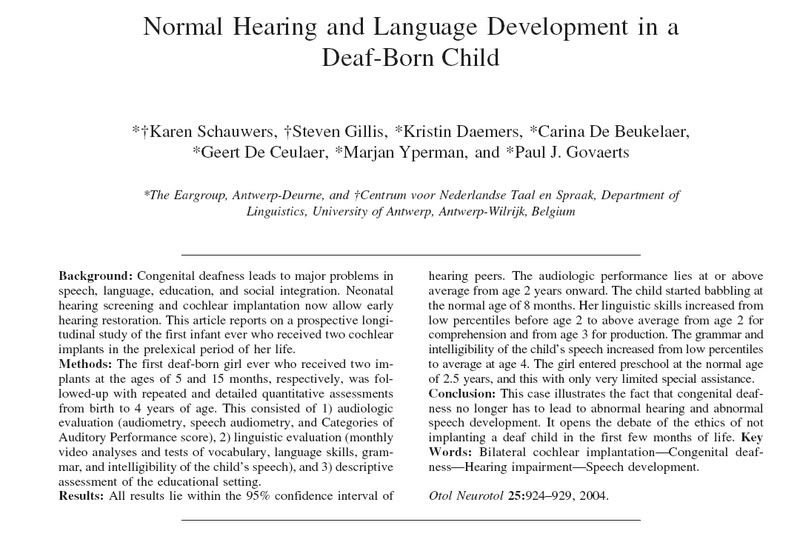I think if more infants are implanted bilaterally, the need for an oral-only approach is more likely to be pushed on the parents. See what happens in the future.
You might be right. But in the case of Lotte, she uses less and less sign. BUT she is a master in reading lips. It goes almost unnoticed by us, until we find out that her CI was not on for example. Her voice when she speakes without hearing herself is normal. We do not notice a difference.
(Just to add... I do believe that using sign has helped us tremendously in Lotte's development. I would recommend it to any parent.)
My worry would also be that follow-up would decrease. (But then again, how much follow-up would be needed for an implanted 1-year old compared to a 4-year old??)
We can see that many institutes think that when the child has been implanted with CI, they can hear and therefore speak.
Follow-up of these children (and adults) is very important in order to get the best benefit.
We had to go through great lengths to get 5 hours (which in fact is 4 real hours) of speech therapy for Lotte. My wife fought hard for that and had to argue a lot. She did not become popular with the local government with all the letters she wrote, but in the end it worked.
But it worked because all involved would be educated on how CI's work and how the children should be followed up afterwards.
We all have to think of CI as a system that involves the technology for a small part, but an organisation around it that is crucial. The person with CI, the parents, the teachers, the local government, the speech therapists. All are a vital elements in the concept of CI.


